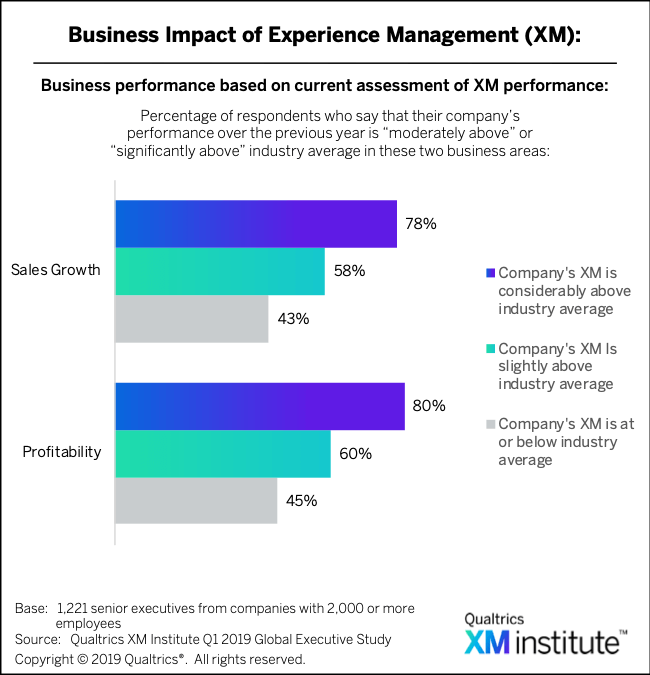Experience Management
The global state of experience management
Over the last year with Qualtrics, I’ve had the opportunity to meet with leaders around the world. As a matter of fact, I just returned home from sessions in Berlin, Munich, and Paris. Everywhere I go, I find passionate XM professionals who are looking to help their organizations tap into the power of Experience Management.
XM is clearly a global movement. The potential for driving improvement by better understanding and catering to all of the human beings that an organization touches—from suppliers to employees to partners to customers—is a universal opportunity.
Having said that, XM is not being adopted in the same way across every region. To better understand how XM is progressing around the world, the XM Institute surveyed 1,221 executives from large organizations in six countries: Australia, Canada, Germany, Japan, UK, and U.S. We published the insights in a new report, The Global State of XM.
You can download the full report for free, but here are some key takeaways:
XM performance correlates to sales growth and profitability.
Of the respondents who rate their company’s XM as “considerably above average,” four in five say that their profitability over the last year was above average for their industry, and 78% say their sales growth was above average. Both of these results are 35 percentage points higher than those companies with “average” or “below average” XM.
Customer and employee feedback are a powerful combination.
Eighty-one percent of companies that use both customer and employee feedback classify their sales growth as “above average,” whereas only 58% of companies who use only one type of feedback and 40% of companies who don’t use either type of feedback say their sales growth is better than average. The gaps are even larger when it comes to profitability. As I’ve said in the past, CX and EX are inextricably linked.
Executives value XM differently around the globe.
More than 70% of these executives believe that it is at least moderately important for their organizations to improve their XM capabilities. Canadian executives are the most energized about XM, with 74% rating improving XM as “very important” or “critical.” At the other end of the spectrum, only 44% of German executives felt the same way.
Companies face different obstacles to XM success.
Executives who believe their organizations have considerably above average XM capabilities selected technology limitations as the most significant obstacle to their XM efforts. For executives at companies with average or below average XM capabilities, the top obstacles are lack of clear strategy and lack of leadership for these efforts. If your organization also struggles with XM strategy and leadership, I encourage taking a look at our report, Activating Executive Commitment.
While XM may be evolving differently around the world, the blueprint for success is globally consistent: The XM Operating Framework. Organizations that want to tap into the power of XM need to master six competencies: Lead, Realize, Activate, Enlighten, Respond, and Disrupt.
Download the free report, The Global State of XM

